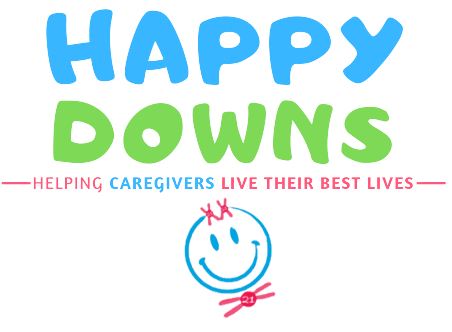Finding employment is a significant milestone for anyone, and for persons with Down Syndrome, it represents so much more than just a paycheck. It’s about independence, personal growth, social connections, and the joy that comes from contributing to the community. I’ve seen firsthand how transformative a fulfilling job can be – the confidence it builds, the friendships it fosters, and the pride it instills.
In this post, let’s walk through practical tips and resources that will empower you to support your loved one in achieving their employment goals. Whether they’re a teenager just starting to think about their future or an adult ready to take the next step in their career, we’ve got you covered.
So, let’s dive in and explore the exciting possibilities together. From understanding the immense benefits of employment to navigating the job search process, here’s the guidance and encouragement you need every step of the way. Let’s make the dream of meaningful employment a reality for your loved one!
Benefits of Employment for Persons with Down Syndrome
Personal Growth and Independence
One of the most rewarding aspects of employment for individuals with Down Syndrome is the personal growth and independence it fosters. When your loved one secures a job, they take on new responsibilities and challenges that help them develop essential life skills.
Example: Consider Sarah, a young woman with Down Syndrome who started working at a local grocery store. Initially, Sarah was responsible for bagging groceries, but over time, she learned how to manage the cash register, interact with customers, and even handle inventory. These tasks not only boosted her confidence but also improved her problem-solving skills and independence.
Actionable Steps:
- Identify Daily Living Skills: Work with your loved one to identify skills they use daily, such as managing time, handling money, or communicating effectively. These skills can translate into job responsibilities.
- Encourage Responsibility at Home: Assign small tasks at home that mimic job responsibilities, like managing a weekly allowance, cooking simple meals, or organizing personal spaces.
- Seek Out Training Programs: Look for community programs that offer job readiness training. These programs often focus on building practical skills in a supportive environment.
Social Interaction and Inclusion
Employment provides a wonderful opportunity for persons with Down Syndrome to interact with a diverse group of people and build meaningful relationships. The workplace can become a place of social inclusion where they feel valued and accepted.
Example: Jake, a young man with Down Syndrome, found a job at a local coffee shop. His cheerful demeanor and friendly nature made him a favorite among customers and coworkers alike. Through his job, Jake made new friends, participated in team activities, and became a beloved member of the community.
Actionable Steps:
- Encourage Social Activities: Encourage your loved one to participate in social activities and community events. This can help them build confidence in interacting with others.
- Role-Playing Exercises: Practice common workplace interactions at home through role-playing. This can help your loved one become more comfortable with greetings, small talk, and asking for help.
- Join Support Groups: Join local or online support groups for individuals with Down Syndrome and their families. These groups can provide opportunities for socializing and networking.
Financial Independence
Earning a paycheck can have a profound impact on your loved one’s sense of self-worth and financial independence. It teaches them the value of money, budgeting, and saving for the future.
Example: Emily, who works at a retail store, was thrilled to receive her first paycheck. With the help of her parents, she learned to budget her earnings, save for special purchases, and even set aside money for future goals. This newfound financial independence gave Emily a sense of accomplishment and pride.
Actionable Steps:
- Teach Money Management: Start with basic financial concepts like identifying coins and bills, understanding prices, and making simple transactions.
- Create a Budget: Help your loved one create a budget for their earnings, dividing money into categories such as savings, spending, and donations.
- Open a Bank Account: Consider opening a bank account for your loved one. Some banks may offer special programs for persons with disabilities, including financial education and support.
By understanding and embracing the multifaceted benefits of employment, you can support your loved one in taking their first steps towards a fulfilling and independent life. Each small success builds confidence, fosters social connections, and paves the way for a brighter future.
Assessing Skills and Interests for Employment

Identifying Strengths and Interests
The first step in helping your loved one with Down Syndrome find meaningful employment is to identify their strengths and interests. Understanding what they enjoy and excel at can guide you in finding the right job opportunities that match their unique abilities and passions.
Example: Alex has always loved animals and is naturally gentle and patient. These traits made him an excellent candidate for a job at a local animal shelter, where he helps care for the animals and assist with adoptions.
Actionable Steps:
- Observe Daily Activities: Pay attention to the activities your loved one enjoys during their free time. Do they enjoy cooking, organizing, working with their hands, or helping others?
- Use Assessment Tools: Utilize tools like interest inventories and skill assessments designed for persons with disabilities. These can provide insights into your loved one’s preferences and strengths.
- Ask Directly: Have open conversations with your loved one about their interests and what kind of work they might enjoy. Encourage them to express their passions and aspirations.
Setting Realistic Career Goals
Once you’ve identified strengths and interests, the next step is to set realistic career goals. Having clear, achievable goals can help your loved one stay motivated and focused on their journey toward employment.
Example: Maria loves helping people and has excellent organizational skills. With these strengths in mind, she set a goal to work in an office environment, starting with an entry-level position and aiming to become an administrative assistant.
Actionable Steps:
- Break Down Goals: Divide long-term career goals into smaller, manageable steps. For example, if the goal is to become a chef, start with learning basic cooking skills, then move on to working in a kitchen.
- Create a Timeline: Establish a realistic timeline for achieving each step. This can help keep your loved one on track and provide a sense of progress.
- Celebrate Milestones: Celebrate each achievement, no matter how small. Recognizing progress boosts confidence and motivation.
Building a Resume
A well-crafted resume is an important tool in the job search process. It showcases your loved one’s skills, experiences, and abilities to potential employers.
Example: John, who enjoys gardening, has volunteered at a community garden for several years. His resume highlights his experience in planting, watering, and maintaining plants, as well as his ability to work independently and as part of a team.
Actionable Steps:
- Highlight Strengths: Focus on the strengths and abilities that make your loved one a valuable employee. Use clear, concise language to describe their skills and accomplishments.
- List Volunteer Experience: Include any volunteer work, internships, or community service activities. These experiences demonstrate a commitment to working and contributing to the community.
- Seek Professional Help: Consider seeking assistance from a job coach or employment counselor who specializes in working with individuals with disabilities. They can help create a resume that effectively highlights your loved one’s qualifications.
By taking these steps to assess skills and interests, set realistic career goals, and build a strong resume, you’re paving the way for your loved one to find a job that is both fulfilling and suited to their unique talents. With the right preparation and support, the path to meaningful employment becomes clearer and more achievable.
Employment Opportunities for Persons with Down Syndrome
Traditional Employment
Traditional employment can provide a structured and supportive environment for persons with Down Syndrome. Many businesses are recognizing the value of a diverse workforce and are eager to hire dedicated and hardworking employees.
Example: Sam, who has Down Syndrome, found a job at a local supermarket. He started as a grocery bagger but quickly moved up to stocking shelves and helping customers find products. The supermarket valued Sam’s attention to detail and friendly nature, and he became a beloved member of the team.
Actionable Steps:
- Research Local Businesses: Look for businesses in your community that have a track record of hiring individuals with disabilities. Reach out to them to inquire about job opportunities.
- Visit Job Fairs: Attend job fairs specifically designed for individuals with disabilities. These events can provide direct access to employers who are actively looking to hire.
- Prepare for Applications: Help your loved one complete job applications, tailoring their resume to highlight relevant skills and experiences for each position.
Supported Employment Programs
Supported employment programs are designed to help individuals with disabilities find and maintain jobs. These programs often provide job coaching, on-the-job training, and ongoing support to ensure success.
Example: Lily, who wanted to work in a bakery, joined a supported employment program that matched her with a local bakery. The program provided a job coach who helped Lily learn her tasks and adjust to the work environment. With this support, Lily flourished and became a valued employee.
Actionable Steps:
- Research Programs: Look for supported employment programs in your area. Some organizations, such as vocational rehabilitation agencies, offer these services.
- Connect with Job Coaches: Job coaches can provide personalized support and training, helping your loved one navigate the workplace and develop necessary skills.
- Utilize Community Resources: Reach out to local disability advocacy groups or community centers that offer employment services for individuals with Down Syndrome.
Entrepreneurial Ventures
Encouraging self-employment or small business ventures can be an excellent way for individuals with Down Syndrome to pursue their passions and develop entrepreneurial skills. With the right support, your loved one can turn their hobbies and interests into a successful business.
Example: Shadeeza has a talent for painting. With the help of her family, she started an online shop to sell her creations (https://www.shadeezabuckley.com/). The business allows Shadeeza to work at her own pace and showcase her artistic talents to a wider audience.
Actionable Steps:
- Identify Interests: Help your loved one identify hobbies or skills they are passionate about that could be turned into a business opportunity.
- Create a Business Plan: Develop a simple business plan that outlines goals, target customers, and necessary resources. Keep it flexible to accommodate growth and changes.
- Seek Support: Look for programs that support entrepreneurs with disabilities. These programs can offer guidance, training, and financial assistance to help start and grow a business.
Volunteering as a Pathway to Employment
Volunteering can be a valuable stepping stone to paid employment. It provides opportunities to gain experience, develop skills, and build a professional network, all while contributing to the community.
Example: Emma volunteered at a local library, helping with shelving books and organizing events. Through her volunteer work, she developed strong organizational skills and made connections that eventually led to a paid position at the library.
Actionable Steps:
- Find Volunteer Opportunities: Look for volunteer opportunities that match your loved one’s interests and skills. Some organizations are happy to welcome volunteers and provide a supportive environment.
- Treat Volunteering Like a Job: Encourage your loved one to approach volunteering with the same dedication and professionalism they would a paid job. This attitude can lead to valuable experience and references.
- Leverage Volunteer Experience: Use the skills and experiences gained through volunteering to build a strong resume and job application. Highlight the responsibilities and achievements in a way that shows readiness for paid employment.
By exploring these various employment opportunities, you can help your loved one find a job that aligns with their interests and strengths. Whether it’s through traditional employment, supported programs, entrepreneurial ventures, or volunteering, there are numerous pathways to meaningful and fulfilling work.
Navigating the Job Search Process

Job Search Strategies
Finding the right job can be a journey, but with effective strategies, you can help your loved one navigate the job search process successfully. It’s all about knowing where to look and how to present their strengths.
Example: Oliver, who has Down Syndrome, was passionate about technology and wanted to work in an office. His family helped him search for job openings online, attend local job fairs, and connect with employment agencies. These efforts paid off when Oliver landed a job as a data entry clerk at a local company.
Actionable Steps:
- Online Job Boards: Utilize online job boards specifically designed for individuals with disabilities, such as abilityJobs. These platforms often feature inclusive employers.
- Local Employment Agencies: Reach out to local employment agencies that specialize in placing individuals with disabilities. They can provide personalized assistance and job leads.
- Networking: Leverage personal and professional networks to uncover job opportunities. Inform friends, family, and community members about your loved one’s job search.
Preparing for Job Interviews
Job interviews can be intimidating, but with the right preparation, your loved one can approach them with confidence. Practicing common interview questions and scenarios can make a significant difference.
Example: Sophie was nervous about her first job interview at a bookstore. Her family helped her practice answering questions about her previous experiences and role-playing different interview scenarios. This preparation helped Sophie feel more comfortable and confident during the actual interview, leading to a successful outcome.
Actionable Steps:
- Mock Interviews: Conduct mock interviews at home, using common interview questions. Practice how to answer these questions clearly and confidently.
- Interview Preparation Workshops: Look for local workshops or online resources that offer interview preparation for individuals with disabilities.
- Dress Rehearsal: Help your loved one choose appropriate interview attire and practice greetings, handshakes, and body language to make a positive first impression.
Networking and Building Connections
Building a professional network can open doors to job opportunities that might not be advertised. Encourage your loved one to connect with people in their desired field and participate in community activities.
Example: Carlos wanted to work in the hospitality industry. He and his family attended local business networking events, where they met professionals who offered valuable advice and job leads. These connections eventually helped Carlos secure a position at a hotel.
Actionable Steps:
- Join Professional Groups: Encourage your loved one to join professional groups or associations related to their field of interest. These groups often host networking events and provide job leads.
- Volunteer and Internships: Participating in volunteer work or internships can help build a network of professional contacts. These experiences can also lead to job offers.
- Social Media: Utilize social media platforms like LinkedIn to connect with professionals and join groups focused on employment for individuals with disabilities.
Accommodations and Rights
Understanding workplace accommodations and legal rights is crucial for ensuring a supportive and inclusive work environment. Knowing how to advocate for necessary support can make a significant difference in your loved one’s job success.
Example: Mark, who has Down Syndrome, needed certain accommodations to succeed at his job in a retail store. His family worked with the employer to arrange a job coach and adjust his work schedule. These accommodations helped Mark thrive in his role.
Actionable Steps:
- Know Your Rights: Familiarize yourself with the rights of individuals with disabilities in your country. These laws protect against discrimination and ensure reasonable accommodations.
- Requesting Accommodations: Help your loved one identify any accommodations they might need and learn how to request them from employers. This could include job coaching, flexible scheduling, or assistive technology.
- Workplace Advocacy: Be prepared to advocate for your loved one’s rights if necessary. This might involve working with HR departments or seeking advice from disability advocacy organizations.
By navigating the job search process with these strategies, you can support your loved one in finding and securing meaningful employment. With preparation, networking, and a clear understanding of their rights, they can approach job opportunities with confidence and determination.
Providing Ongoing Employment Support
Continuous Encouragement and Motivation
Once your loved one secures a job, ongoing encouragement and motivation are essential to their long-term success and happiness. Celebrate their achievements, no matter how small, and continuously remind them of their strengths and abilities.
Example: After Jessica started working at a local café, her family made a point to celebrate her first month on the job with a small party. They regularly checked in with her to share in her excitement about new tasks she learned and praised her efforts and dedication.
Actionable Steps:
- Celebrate Milestones: Acknowledge and celebrate work anniversaries, completed projects, and personal achievements. Positive reinforcement boosts confidence and motivation.
- Regular Check-Ins: Maintain regular check-ins with your loved one to discuss their job, listen to their experiences, and provide reassurance and advice.
- Encouraging Positive Mindset: Promote a positive mindset by focusing on their accomplishments and encouraging them to overcome challenges with perseverance.
Addressing Challenges and Setbacks
Challenges and setbacks are a natural part of any job, and it’s important to provide the support and tools needed to navigate these difficulties. Help your loved one develop problem-solving skills and resilience.
Example: When Alex encountered difficulties with a new task at his job, his family encouraged him to break the task into smaller steps. They practiced each step with him until he felt comfortable and confident.
Actionable Steps:
- Identify Challenges Early: Be proactive in identifying any challenges your loved one might face at work. Early intervention can prevent small issues from becoming major obstacles.
- Develop Problem-Solving Skills: Teach your loved one problem-solving techniques, such as breaking tasks into manageable steps, seeking help when needed, and staying patient and persistent.
- Provide Emotional Support: Offer a listening ear and empathetic support when setbacks occur. Encourage open communication about their feelings and reassure them that it’s okay to face challenges.
Professional Development
Encouraging ongoing learning and skill development helps your loved one grow in their career and stay engaged with their work. Continuous improvement opens doors to new opportunities and advancements.
Example: After working for a year at a retail store, Ben expressed interest in learning more about customer service. His family supported him in enrolling in a customer service course at a local community college, which helped him gain new skills and confidence.
Actionable Steps:
- Identify Learning Opportunities: Look for professional development opportunities such as workshops, online courses, and vocational training that align with your loved one’s career goals.
- Support Further Education: Encourage your loved one to pursue further education or certifications that can enhance their job performance and career prospects.
- Mentorship Programs: Connect your loved one with mentors in their field who can provide guidance, share experiences, and offer career advice.
By providing continuous support, addressing challenges proactively, and encouraging professional development, you can help your loved one thrive in their career. A supportive environment at home and work fosters growth, resilience, and fulfillment, ensuring they remain motivated and successful in their chosen path.
Empowering Individuals with Down Syndrome

As we reach the end of this journey together, let’s take a moment to reflect on the key points we’ve covered in helping your loved one with Down Syndrome find meaningful employment. From understanding the immense benefits of employment to navigating the job search process and providing ongoing support, each step is vital in paving the way for a fulfilling career.
Remember, every small achievement is a victory worth celebrating. Your love, support, and encouragement play a crucial role in your loved one’s success. By setting realistic goals, exploring diverse employment opportunities, and fostering a positive and inclusive environment, you empower them to reach their full potential.
To my fellow Family Caregivers out there, your dedication and compassion make a world of difference. The journey may have its challenges, but the rewards are immeasurable. Watching your loved one grow, thrive, and find joy in their work is a testament to your unwavering support and belief in their abilities.
As you move forward, keep in mind the power of persistence and the importance of celebrating every milestone. Encourage continuous learning and development, and always advocate for the support and accommodations your loved one needs to succeed.
I hope this guide has provided you with valuable insights and practical steps to help your loved one embark on their employment journey. Together, let’s make the dream of meaningful employment a reality for every individual with Down Syndrome.
Thank you for being a part of our HappyDowns community. We’re here to support you every step of the way, and we believe in the amazing potential of your loved one. Let’s continue to nurture their strengths, celebrate their successes, and create a world where everyone can find joy and purpose in their work.







